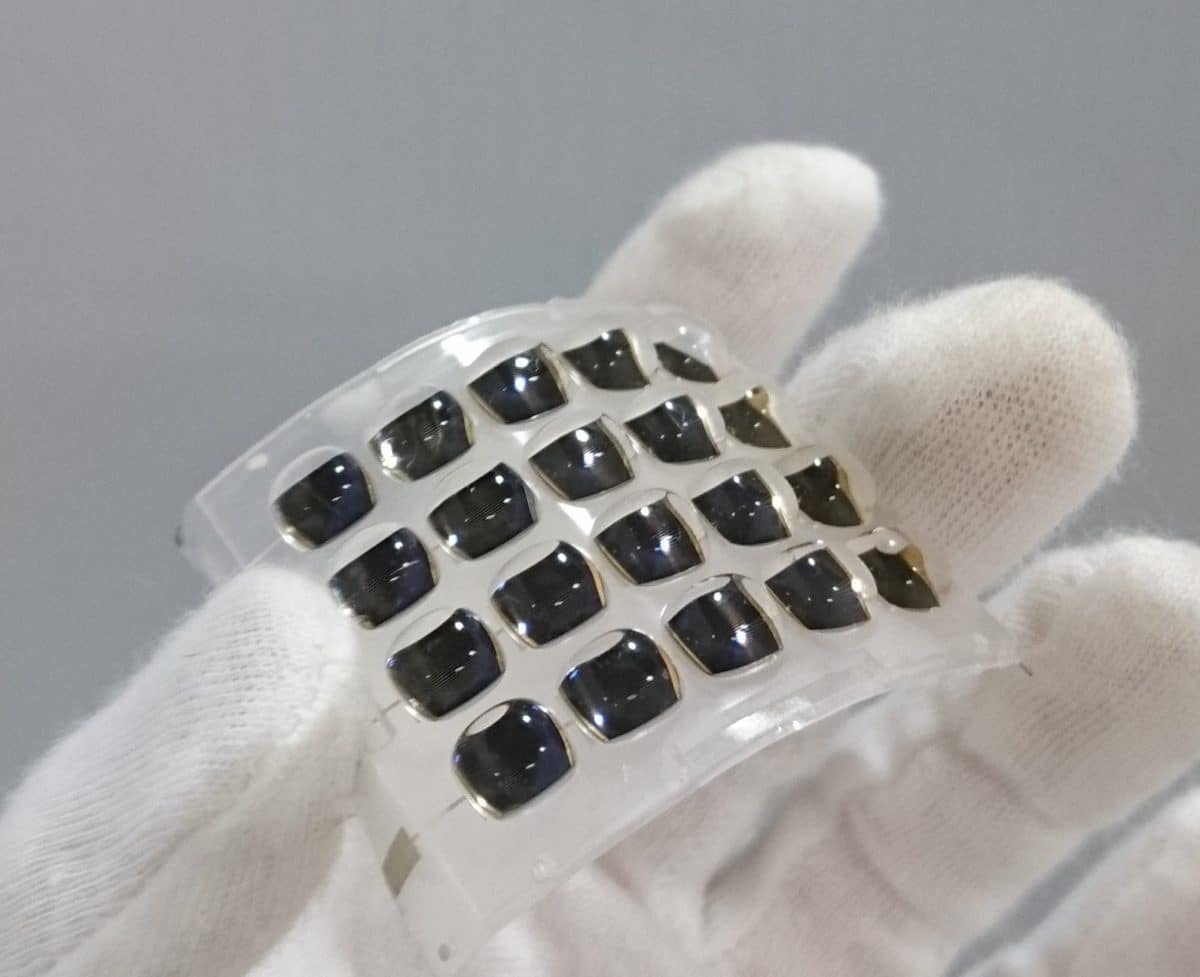A Japanese research team has developed a stretchable micro-scale concentrator photovoltaic (CPV) module that can be installed on arbitrary 3D curved surfaces characterized by sharp curvatures.
The module measures 32 mm × 40 mm, with a thickness of 4.1 mm. It weighs in at 2.84 kg m2. It is based on a silicone concentrator lens, a thermoplastic polyurethane sheet, and a rigid III–V triple-junction solar cell.
“When perfectly fitted on a 3D curved surface with a sharp curvature, a prototype module achieves an outdoor power conversion efficiency of 15.4% and the daily generated electricity yield improves to a maximum of 190% relative to a non-concentration stretchable PV module,” the scientists said.
The 4.10 mm × 4.95 mm triple-junction cells are encapsulated by the stretchable silicone lens, and the module has the same structure as those of light-emitting diode (LED) packages.
“The ratio of the total cell area to the active power-generation area of the module (32 mm × 40 mm) was 31.7%, and the ratio of the active cell area to the active module area was 28.3%,” the academics said.
They claim that the lens-encapsulating design has the advantage of reducing the number of lens-air interfaces penetrated by sunlight, which results in a lower Fresnel loss at the interfaces between dissimilar materials. The so-called Fresnel loss is an optical power loss caused by a refractive-index difference across propagation media interfaces encountered by an electromagnetic wave.
The prototype was processed with a stretchable conductive paste and was screen-printed on the TPU sheet. It formed an electrode pattern and the cells were placed on this electrode pattern through die-bonding and wire-bonding. Injection molding was used to form the lens on the device.
Outdoor testing showed that the module could fit perfectly on spherical surfaces with a curvature radius of 100 mm, and under outdoor one-sun irradiation. According to the researchers, the stretchable panel could be placed on car roofs (without gaps), motorcycle helmets, airfoil-shaped surfaces, and even concave surfaces.
The scientists described the device in the paper “Stretchable micro-scale concentrator photovoltaic module with 15.4% efficiency for three-dimensional curved surfaces,” which was recently published in Communications Materials. The research team included scientists from Japan's Nagaoka University of Technology and Toyota Motor, which recently assessed the potential to use solar cells based on gallium arsenide (GaAs) and other III-V materials in passenger cars that are partially powered by PV.
This content is protected by copyright and may not be reused. If you want to cooperate with us and would like to reuse some of our content, please contact: editors@pv-magazine.com.




By submitting this form you agree to pv magazine using your data for the purposes of publishing your comment.
Your personal data will only be disclosed or otherwise transmitted to third parties for the purposes of spam filtering or if this is necessary for technical maintenance of the website. Any other transfer to third parties will not take place unless this is justified on the basis of applicable data protection regulations or if pv magazine is legally obliged to do so.
You may revoke this consent at any time with effect for the future, in which case your personal data will be deleted immediately. Otherwise, your data will be deleted if pv magazine has processed your request or the purpose of data storage is fulfilled.
Further information on data privacy can be found in our Data Protection Policy.